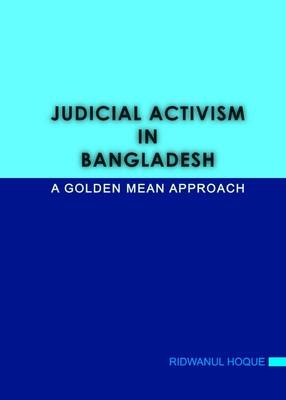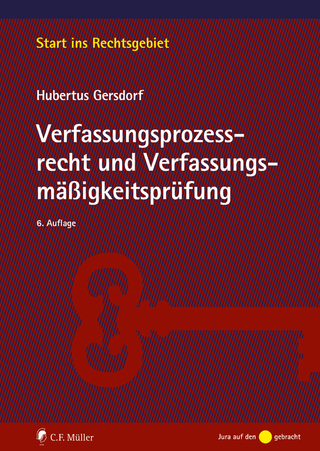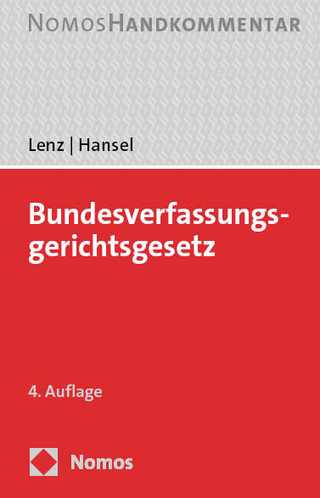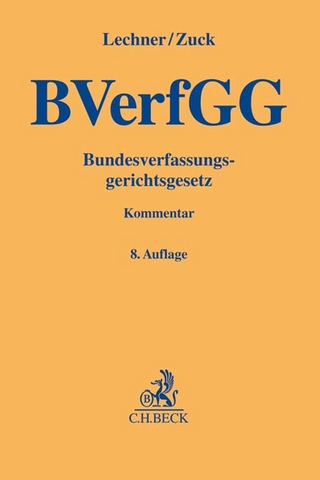
Judicial Activism in Bangladesh
A Golden Mean Approach
Seiten
2011
|
Unabridged edition
Cambridge Scholars Publishing (Verlag)
978-1-4438-2733-1 (ISBN)
Cambridge Scholars Publishing (Verlag)
978-1-4438-2733-1 (ISBN)
This book critically examines the evolving global trend of judicial activism with particular reference to Bangladesh. It constructs judicial activism as a golden-mean adjudicative technology, standing between excessive judicial assertion and unacceptable judicial passivity that may leave injustices un-redressed. It argues that judicial balancing between over-activism and meek administration of justice should essentially be predicated upon domestic conditions, and the needs and fundamental public values of the judges’ respective society. Providing cross-jurisdictional empirical evidence, the study demonstrates that judicial activism, steered towards improving justice and grounded in one’s societal specificities, can be exercised in a morally and legally legitimate form and without rupturing the balance of powers among the state organs.This study has sought to displace the myth of judicial activism as constitutional transgression by “unelected” judges, arguing that judicial activism is quite different from excessivism. It is argued and shown that a particular judge or judiciary turns out to be activist when other public functionaries avoid or breach their constitutional responsibilities and thus generate injustice and inequality. The study treats judicial activism as the conscientious exposition of constitutional norms and enforcement of public duties of those in positions of power.The study assesses whether Bangladeshi judges have been striking the correct balance between over-activism and injudicious passivity. Broadly, the present book reveals judicial under-activism in Bangladesh and offers insights into causes for this. It is argued that the existing milieu of socio-political injustices and over-balance of constitutional powers in Bangladesh calls for increased judicial intervention and guidance, of course in a balanced and pragmatic manner, which is critical for good governance and social justice.“Writing about judicial activism easily gets shackled by fussy and pedestrian debates about what judges may or may not do as unelected agents of governance. The book . . . goes much beyond such reductionist pedestrianisation of law, for it courageously lifts the debate into the skies of global legal realism. The analysis perceptively addresses bottlenecks of justice, identifying shackles and mental blocks in our own minds against activising concerns for justice for the common citizen.”—Prof Werner Menski (Foreword)
Ridwanul Hoque is Associate Professor of Law at the University of Dhaka. He formerly taught in the Department of Law at the University of Chittagong in Bangladesh. Dr Hoque was a Commonwealth Scholar at the University of London’s School of Oriental and African Studies where he studied for his PhD in comparative public law. He studied law at the University of Chittagong for his LLB Honours & LLM, and went to Cambridge where he studied for an LLM in international commercial law. He has published in British, American, Indian, and Bangladeshi law journals.
| Verlagsort | Newcastle upon Tyne |
|---|---|
| Sprache | englisch |
| Maße | 148 x 212 mm |
| Themenwelt | Recht / Steuern ► Allgemeines / Lexika |
| Recht / Steuern ► EU / Internationales Recht | |
| Recht / Steuern ► Öffentliches Recht ► Verfassungsverfahrensrecht | |
| ISBN-10 | 1-4438-2733-9 / 1443827339 |
| ISBN-13 | 978-1-4438-2733-1 / 9781443827331 |
| Zustand | Neuware |
| Haben Sie eine Frage zum Produkt? |
Mehr entdecken
aus dem Bereich
aus dem Bereich
Buch | Softcover (2024)
C.F. Müller (Verlag)
20,00 €


